Meet Matthew Poh, 48, co-founder of The Caffeine Experience (TCE), a café whose staff members include ex-offenders, youth at risk, or anyone whose family or friends have had brushes with the law. The former owner of an interior design firm had been a regular drug user since he was introduced to Ecstasy by his ex-wife, but after his business folded and he went bankrupt, Matthew turned to drug dealing. Eventually, impacted by his mother’s death, his divorce, and a falling-out with his drug syndicate, he decided to get his life back on track and turn himself over to the police. Matthew was sentenced to a year in jail, four months of which he spent at a halfway house—during this time, that he met prison officer Mr Hilary Lo, 49, who would become TCE’s co-founder. Today, the duo serves up delicious brews across their three branches at Tan Tock Seng Hospital, The Centrepoint and i12Katong. GABRIELLE CHEONG heads to The Centrepoint outlet for a cuppa and to chat with Matthew about his mission to offer both meaningful employment and a non-judgemental space for all.
How did the idea of The Caffeine Experience come about and why did you choose Mr Hilary Lo as your co-founder?
While in prison, fellow inmates often discussed their plans to change their lives for the better and the jobs they wanted to pursue upon release. However, it was also common to see the same people re-offend within the same week and wind up back in the drug rehabilitation centre. Most found it difficult to find work due to the stigma of being ex-offenders. This sparked my idea to create a business that would provide equal employment opportunities for all, including formerly incarcerated individuals. With this business proposal in mind, I approached Mr Hilary Lo, a supervising officer. Hilary was perfect for the role for a few reasons: besides being business savvy, he is also extremely caring. During his 17 years working in prisons, he helped many inmates adapt to life in prison.
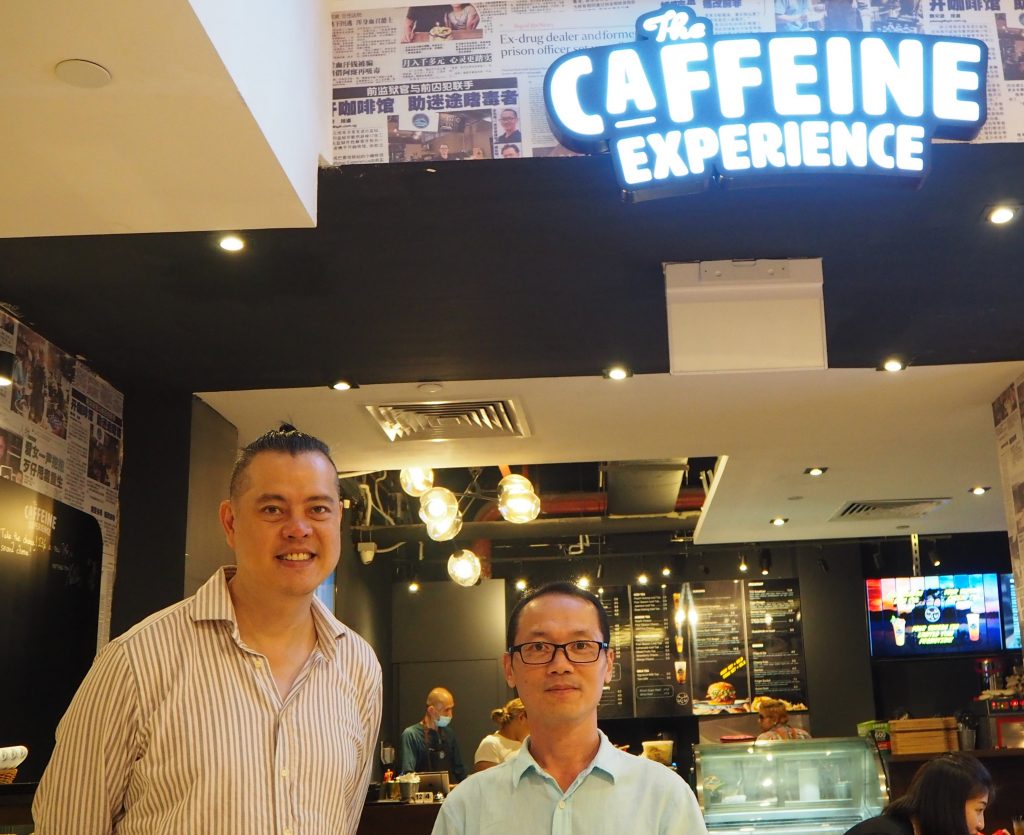
Matthew (left) and co-founder Mr Hilary Lo (right) at TCE's The Centrepoint outlet; photo by Gabrielle Chong.
Given your professional experience in interior design, why did you decide to venture into the new territory of F&B?
Interior design is a highly specialised field, and most people coming out of prison don’t have the expertise. On the other hand, working at a coffee place is a great entry point for them to pick up the necessary skills and learn on the job.
What does TCE do to promote a nurturing yet professional work environment?
Holding down any job is not easy—at the very least, you are expected to be punctual and complete your assigned tasks. But without the self-discipline or focus, it is easy to fall short. Employers thus need to enforce rules and set boundaries to maintain professional standards. At TCE, staff members who report late to work more than three times—six times, for ex-offenders—will be deemed unfit for that role for a three-month period. Additionally, we counsel our employees where necessary, and guide them in terms of cultivating good work habits. In all things, communication is key: I do my best to spend time with my staff, make them feel at home and let them know they are not ostracised.
As someone who once struggled with addiction, can you explain more about addiction and why some people continue to abuse drugs in spite of harsh consequences?
Drugs have their draw. At first it is the escapism one enters to avoid the responsibilities and stressors of everyday life. When high, it feels as if all problems are gone, though the same issues remain after you “wake up”. If people consume drugs frequently enough, their bodies become so addicted that they turn to drugs whenever they run into problems.
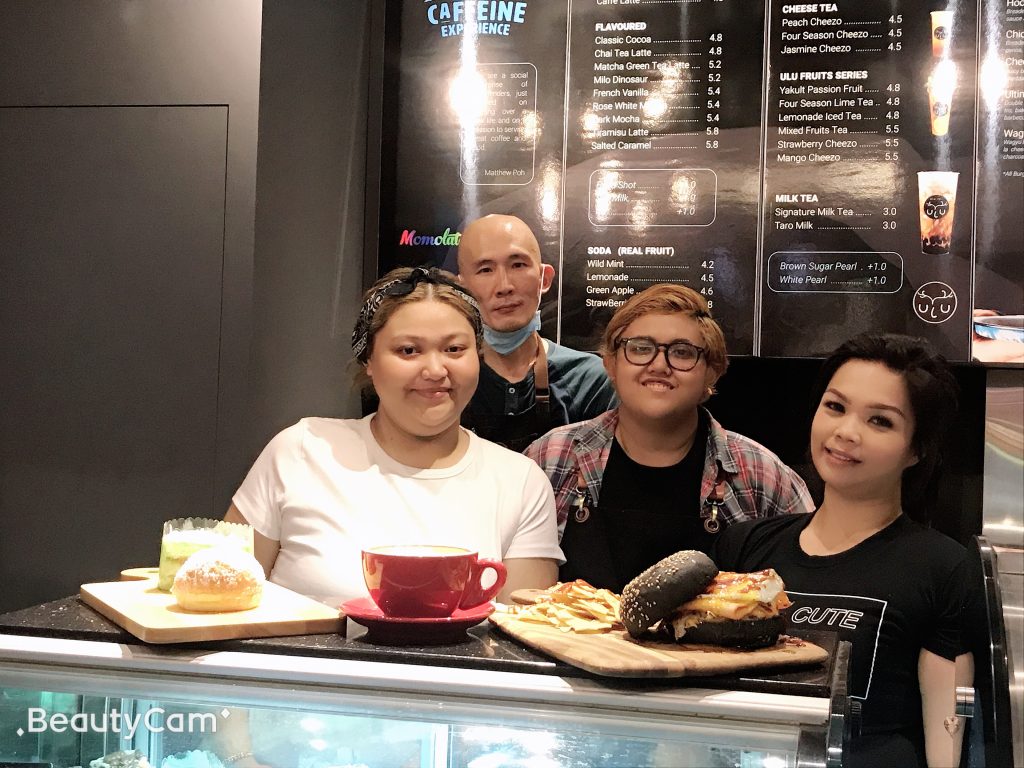
TCE staff; photo courtesy of Matthew Poh.
Can you share any stories of how your work has impacted your at-risk or ex-offender employees?
When we first started TCE, we hired Ted (not his real name) to work for us. After some time, he fell back into drugs. It was a sad, almost heart-breaking moment for the team, but we had to let him go so as not to affect the others. Even after he left, we remained supportive: I advised him to turn over a new leaf and come back when he was ready. Finally, some years later, Ted wrote us a letter, expressing his desire to change his life for the better, and thanking us for being there for him and never ostracising him. Now he’s in prison, but a changed man. Once he’s out, I plan to offer him a job. In terms of present employees, Bruce is a fine example of how people can turn their lives around, and emerge stronger from a past that involved drugs and gangsterism. Today, he not only makes and sells coffee, but also is a strong advocate for the anti-drug movement. Patrick is another stellar team member: he is exceptionally hardworking and clocks long hours at the café.
Not many employers are willing to take a chance at hiring ex-offenders, let alone give second chances. Why do think it’s important to do so?
People who want to “reboot” their lives only need to be given the opportunity to do so. When someone wants to start over, it’s not about waking up one day and deciding, “Today, I’ll have a fresh start.” Rather, this desire to make a profound change stems from a deep conviction forged over a long period of time, during which they experienced many ups and downs. If more employers offered ex-offenders an opportunity instead of writing them off, they are less likely to fall back into drugs or crime.
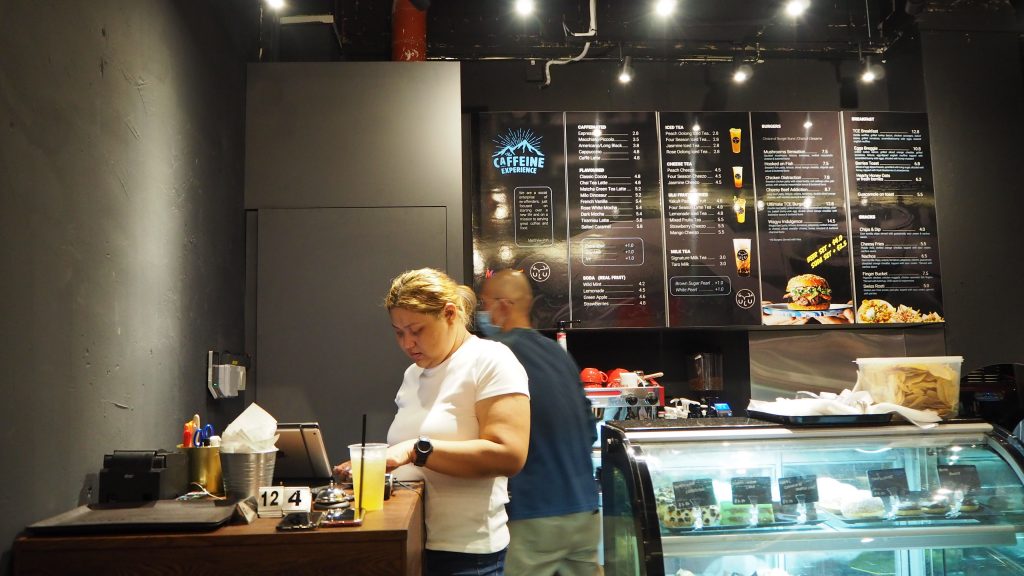
The crowd at TCE has ebbed around 5:30 pm, but its staff are still hard at work; photo by Gabrielle Chong.
What’s your general HR policy like in terms of hiring and re-hiring?
We always give another chance to employees who relapsed, but who've gotten clean and want to work for us again. In terms of new hires, we offer temp and probation positions until we think they’re ready for full-time roles. Having said that, we also consider our customers and business needs during the recruitment process.
On the business side of things, how do you keep TCE financially sustainable?
The truth is, it’s extremely difficult to sustain the business, even with supporters and investors. We have to put in very hard, long hours to ensure our income can offset our expenses. In addition to running the cafés, I also have to stay true to my mission of helping my guys stand on their own two feet and not fall back into addiction. So essentially, my work is two-pronged.
What do you do to maintain the quality of service and products?
We highly encourage our baristas to level-up in their coffee-making skills. In fact, we send them for competitions—one of them is ranked #8 in the Singapore National Barista Championship (I’m #12). In terms of the coffee, our products are ordered every two days to ensure freshness and we do our own quality checks. At our i12katong branch, we have a roaster (a machine that roasts beans) to control the quality of all the beans we make.
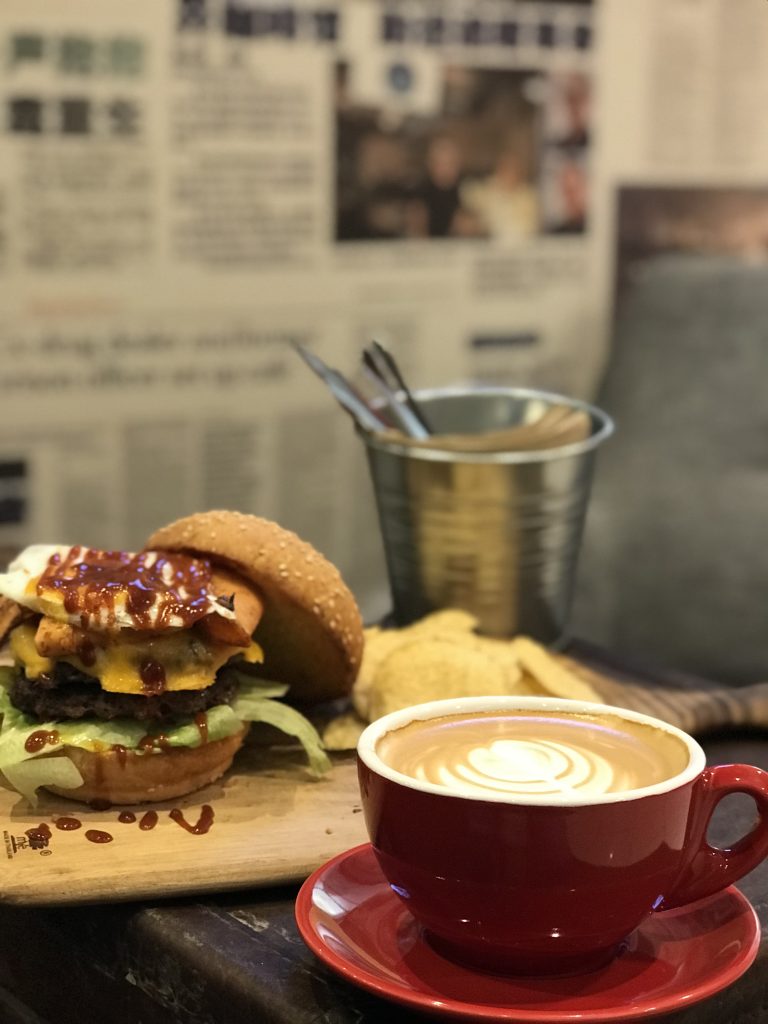
TCE serves juicy burgers and delicious side dishes to go with their coffee; photo courtesy of Matthew Poh.
Speaking of levelling-up, can society do better to increase support for ex-offenders?
Unfortunately, society and ex-offenders stand on different sides of the fence. This “fence” I’m referring to is the invisible barrier between the general public and those who’ve gone to prison. Before I was incarcerated, if someone were to come up to me and say he was an ex-offender, I would’ve kept my distance! Even though I myself was abusing and dealing drugs then, I still had my reservations. So I can understand how people may genuinely want to support ex-offenders, but that “fence” is like a “second prison” that gets in the way of acceptance. To remove the barrier, first eradicate fear. I always tell my staff, “If anybody asks you if you’re an ex-offender, tell them you are, but so is your boss.”
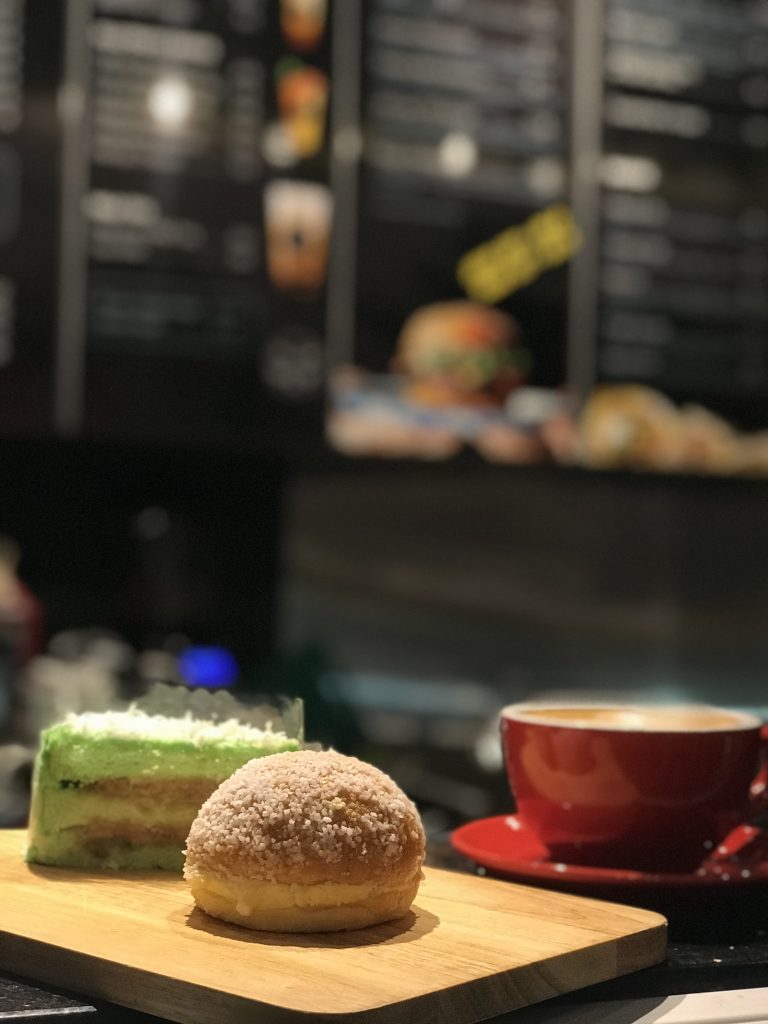
Some of TCE's sweet treats; photo courtesy of Matthew Poh.
What’s next for TCE?
With the right support, and God willing, I hope to open 13, or even 30 cafés in five years’ time.
Finally, what motto do you live by?
That failure is not final; rather, it’s an opportunity to change and improve.
Banner image courtesy of Matthew Poh.
 |
Gabrielle Cheong was a 2019 Summer Associate (Editorial) at the Lien Centre for Social Innovation. She is a rising junior at Yale-NUS College, majoring in History. Gabrielle likes to deconstruct the narratives behind the culture and policies that shape our daily lives, and hopes to pursue a career in policy research. Previously, she volunteered with the Meet-the-People Sessions, the National Parks Board at Pulau Ubin, and was a member of the Community for Advocacy and Political Education (CAPE). She can be reached at gabrielle.cheong@u.yale-nus.edu.sg |








Comments